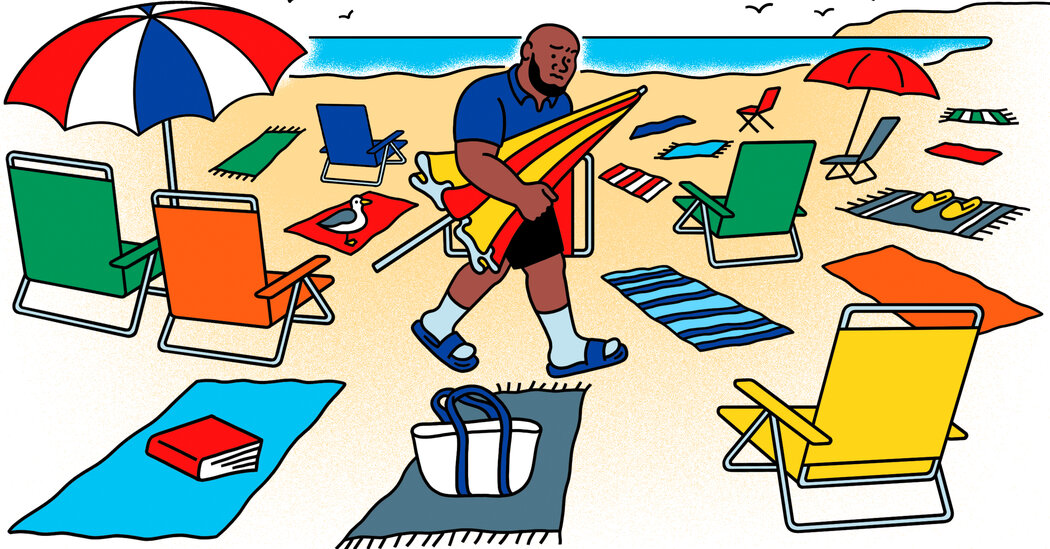I live on Cape Cod, and I have recently noticed something of a current trend in which beachgoers claim valuable (and sometimes scarce) real estate by arriving several hours early to set up chairs, blankets and umbrellas before leaving to return (in some cases several hours later) to eventually move into their pre-claimed territory.
I always thought that you had to be on hand to occupy some piece of public space. Does an empty chair or blanket constitute actual occupancy? Do such phantom claims have any merit? Would someone have the right to ignore such maneuvers by removing these chairs or blankets? If so, what should be the response to the claimant who might return to find their items no longer claiming possession? — Daniel Burt
From the Ethicist:
The aim of such public space is to allow as many people as possible to make the proper use of it. That aim is undermined by absentee claims that prevent others from enjoying a spot on the beach for extended periods. It’s fine to leave evidence of occupancy if you’re just going off to get an ice cream, say, or to visit a restroom. If you do this, though, it might be wise to leave an explanatory note. (“10:15, buying a snack, back by 10:45.”) That’s within the spirit of the social convention. But your beach-blanket buccaneers are abusing this convention and effectively privatizing what should be public.
At the same time, moving other people’s things isn’t to be done lightly. You’ll certainly want to be sure that their owners haven’t just stepped away for an acceptable interval. The social conventions about claiming areas in these public settings are not, of course, precise. Half an hour or so strikes me as a good marker in most such circumstances, but take a poll among people you know. If the beach-spot hogs return while you’re around, you can show them where their possessions are and tell them that you waited for a while and assumed they were not returning. (Should you ever mistakenly displace a bathroom-breaker, you should apologize and immediately cede the spot.)
It’s best when these issues can be settled through social, rather than statutory, means. Certain beach towns in Spain, I’ll note, punish such infractions with stiff fines on beach-spot hogs; the Italian Coast Guard has even seized unattended towels, umbrellas and chairs, holding them until their owners pay a penalty. Let’s hope that at your beach, norms and social sanctions will eventually suffice to discourage these…
Click Here to Read the Full Original Article at NYT > Travel…
